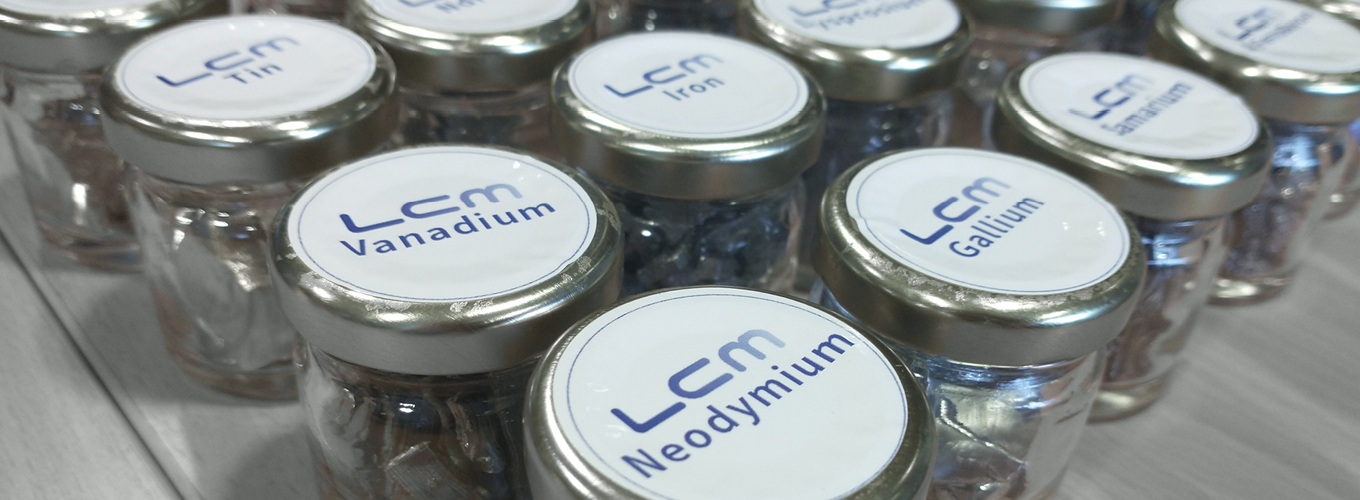In almost every industry you will find some kind of ‘black market’ if you look hard enough and there will always be negatives that tarnish certain work. Therefore, it is so important to have management systems in place for factories and places of work to tackle the harm some industries may cause, this could be from child labour and poor working conditions to harmful substances being released into the environment. Ethical sourcing is a strong belief of LCM, we ensure sourcing is from companies we know have rigorous management systems and procedures in place, and can provide us with the assurance of these in relation to their production and trading activities.
We also recognise that some of our metal feedstock, such as cobalt, cobalt oxide and tin, are associated with ethical and environmental risks. As part of our externally accredited ISO14001 environmental management system, we have a commitment to corporate responsibility and recognise the need for transparency in reporting environmental and ethical information about our products to our customers.
Current issues surrounding ethical sourcing relate mainly to designated ‘conflict minerals’ or the use of child labour for artisanal mining of cobalt ore in the Democratic Republic of Congo (DRC). Conflict mineral legislation is centered around the Dodd-Frank Wall Street Reform and Consumer Protection Act 2010 and focuses on four elements: tungsten, tantalum, tin and gold (the so-called 3TG materials). The Act mandates disclosures on the mining of conflict materials in or near the Democratic Republic of the Congo. For LCM, the only designated 3TG material we currently source is tin. For our supply of this, we require a declaration that the material is either free of any association with conflict-affected areas or that it meets OECD Due Diligence Guidance for Responsible Supply Chains of Minerals from Conflict-Affected and High-Risk Areas (OECD DDG). We are therefore able to certify to customers that all our products containing tin are conflict-free materials within the provisions of the Act.
Cobalt:
Cobalt is not officially classified as a conflict material, but it is considered an issue because the locations of conflict areas can swiftly change. LCM has always been aware of the risks associated with sourcing cobalt from unverified sources, such as the DRC, and has been proactive in addressing these. “We recognise that long-term improvements to the DRC situation would best be achieved by establishing a comprehensive, legitimate and fully transparent industry, thus side-lining the unethical activities and bringing economic benefit to all citizens in the country” explains Ian Higgins, Managing Director.
LCM is a member of the Cobalt Institute and the team has been busy committing time to implement the Cobalt Institute Responsible Assessment Framework (CIRAF). This framework helps to manage the risks associated with cobalt sourcing by requiring the identification of all the original sources of cobalt in the supply chain, this way LCM is certain the company process is fully ethical. It is also required to carry out supplier surveys which require suppliers to submit a declaration to prove the cobalt is not from a high-risk area. Our last supplier survey had a 100% response rate and provided assurance that our supply of cobalt is sourced in accordance with the OECD Due Diligence Guidance. In addition to this, LCM has a Responsible Sourcing Policy and a Human Rights Policy, in order to support our management of risk in this area.
Other CSR Issues:
There are other ways in which LCM embeds corporate social responsibility into its business; integrity always runs side-by-side with innovation. The rare earth industry is dominated by cheap supply and production from China, which on occasion has been criticised for being seen to have far lower ethical and environmental standards that can lead to significant environmental impacts.
“We only work with reputable Chinese companies, many of whom we have known for several years. To this end we participate in European projects that aim to establish a stable and secure supply of Rare Earth Elements from non-Chinese sources.” added Dr. Higgins.
LCM strive to deliver the highest quality of products and continually review ethical business practices. We are always open to suggestions from customers and other interested parties as to how we might achieve this further.

